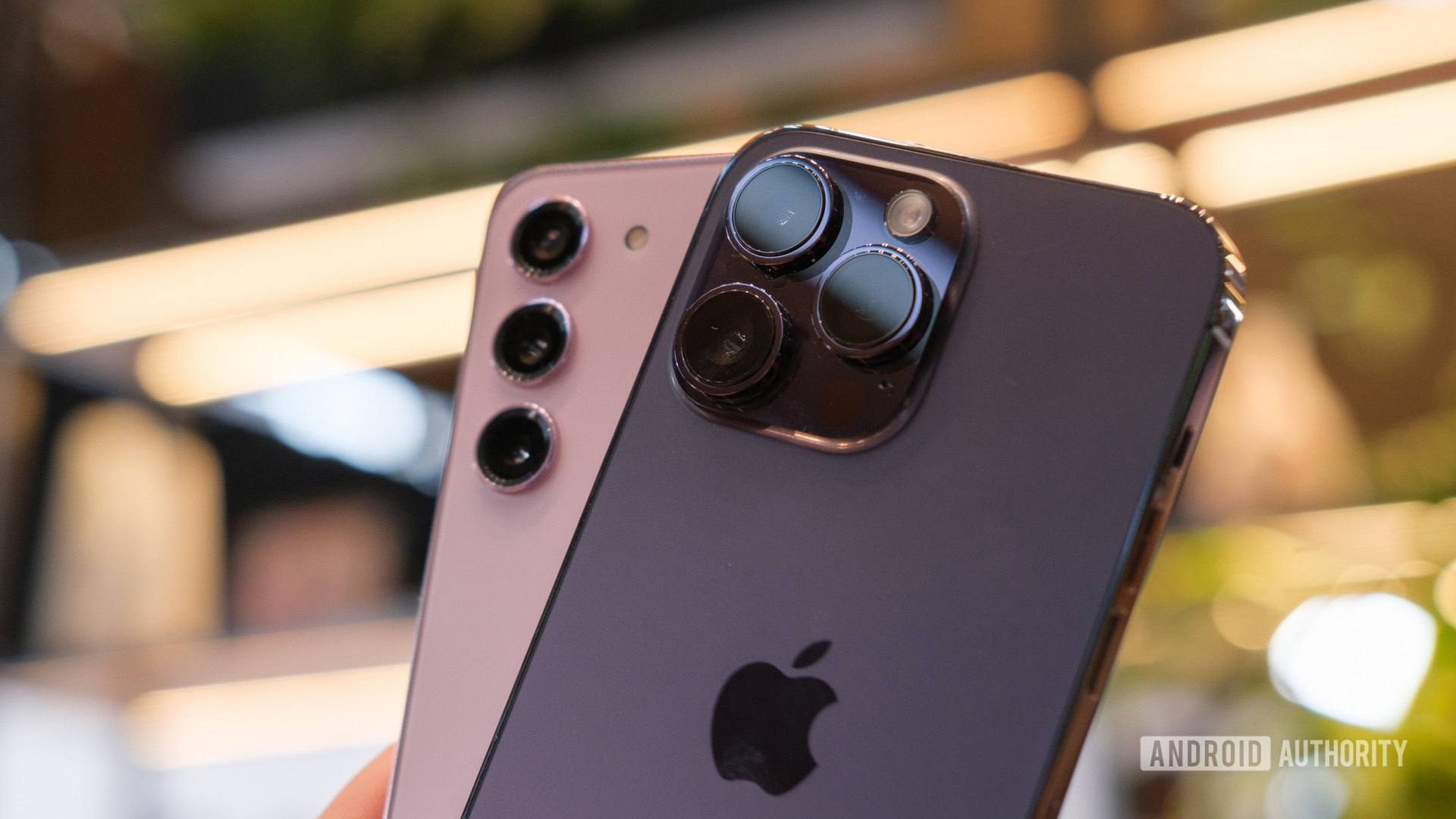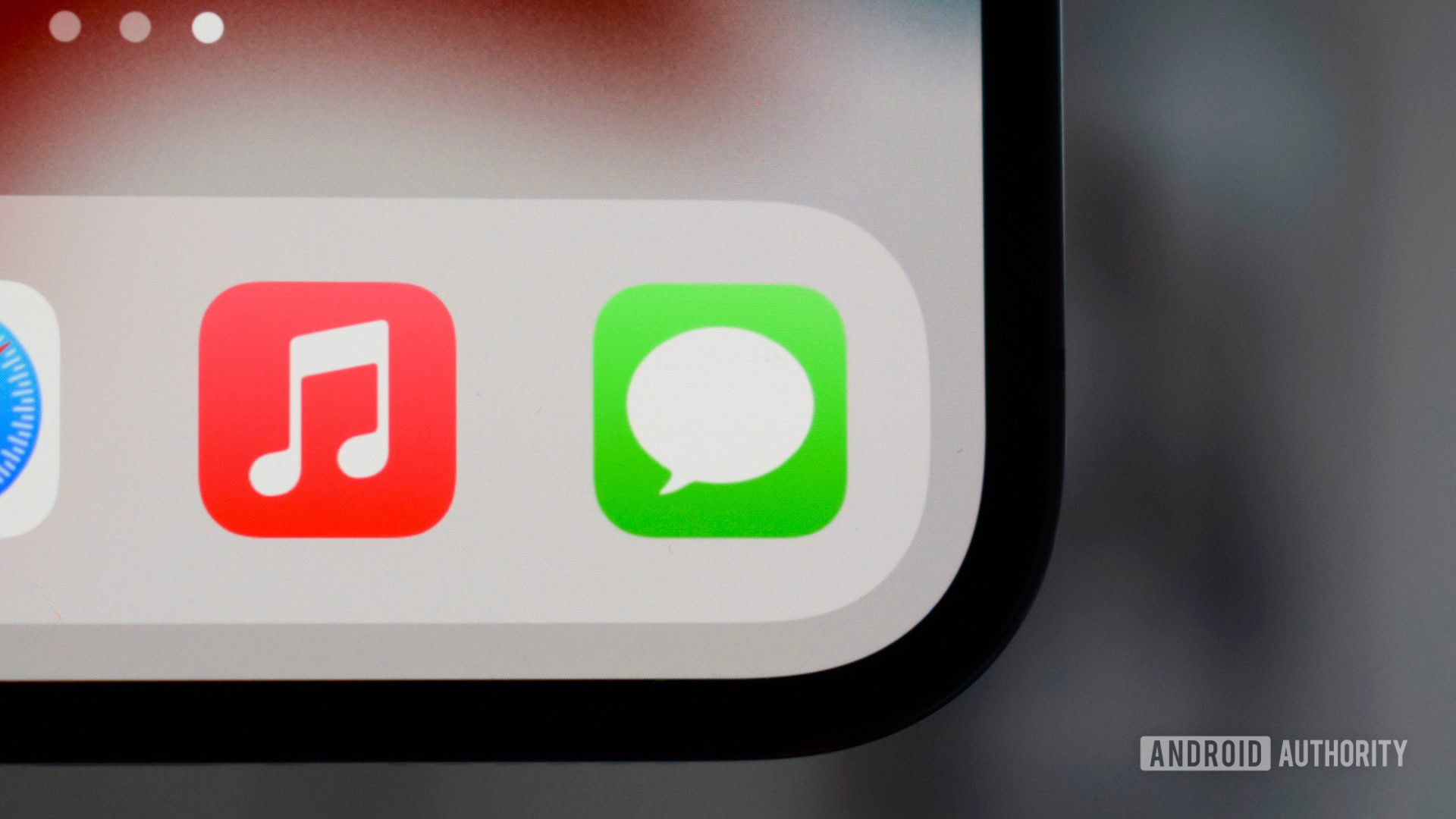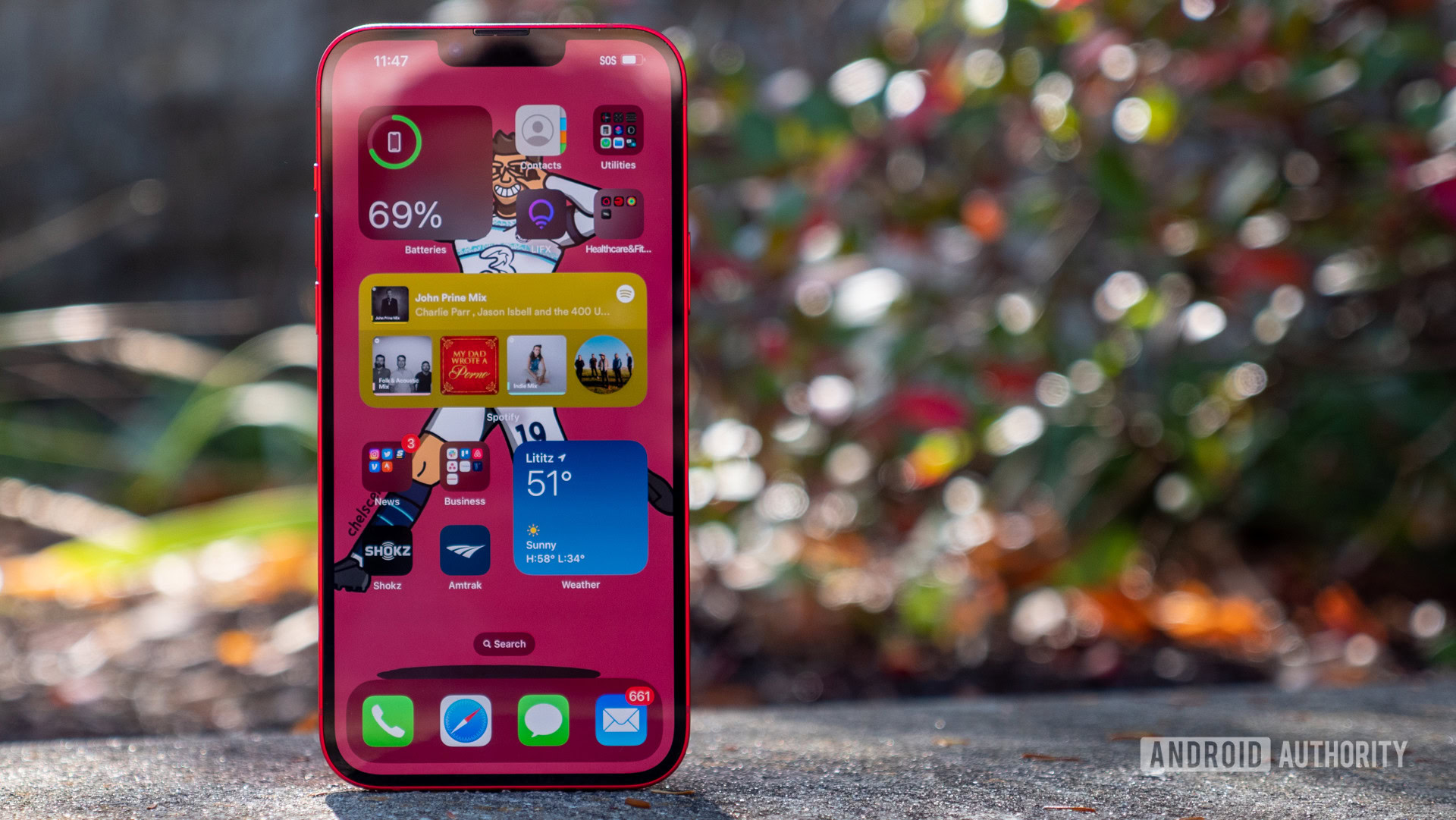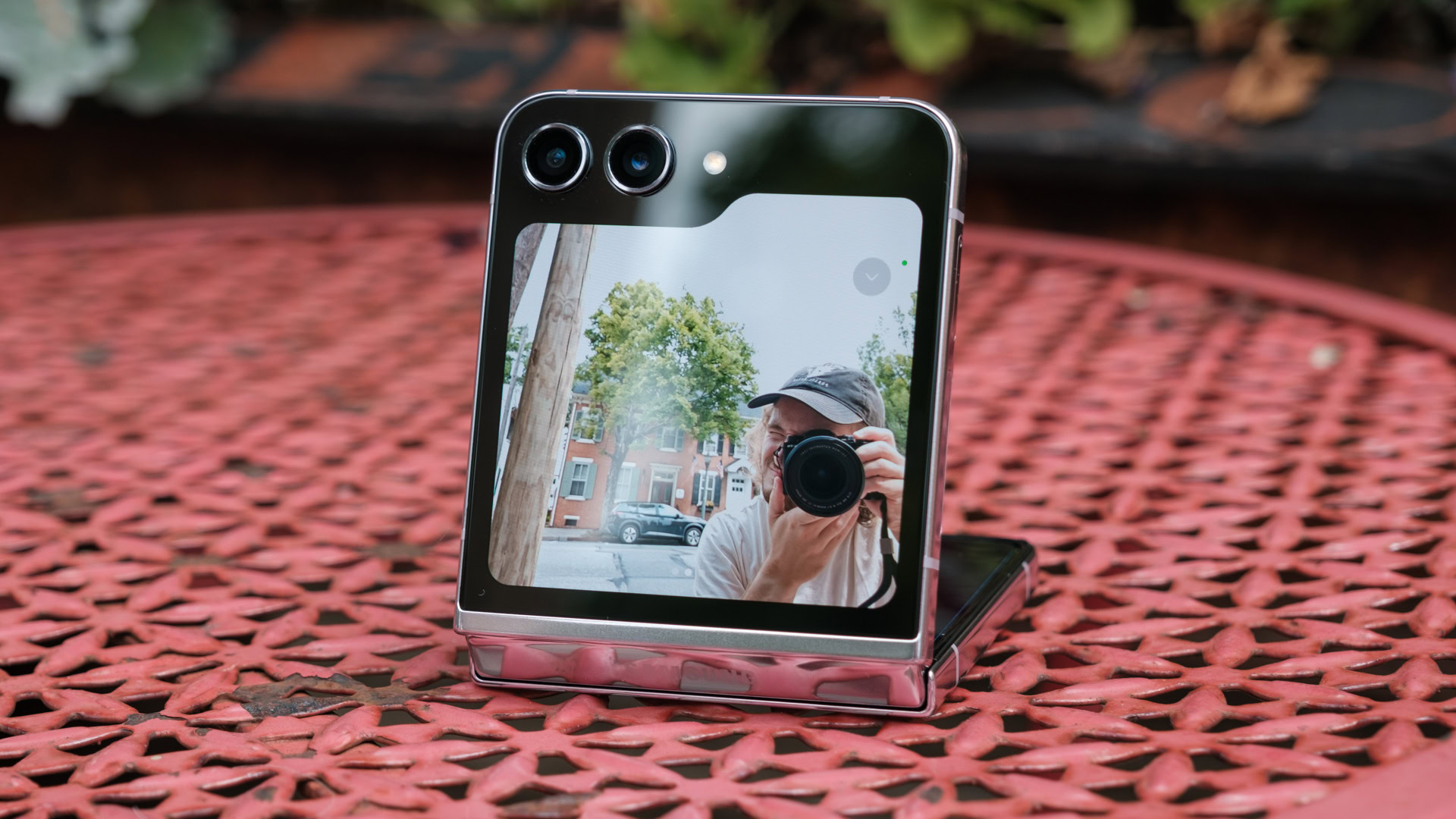Affiliate links on Android Authority may earn us a commission. Learn more.
Only the EU can save Android in the US now

The latest US smartphone market share report from Counterpoint Research makes for grim reading in the battle of Android versus iOS. Apple’s iPhone accounted for a massive 55% of the market in Q2 2023, up an impressive 10% compared to a year ago. This dominance is particularly noteworthy because the quarter was a quiet period for Apple with no new phone launches. Meanwhile, Samsung accounted for a mere 23% of the market (down 5% year-on-year) despite launching the Galaxy S23 series and several Galaxy A phones in Q1 and Q2.
This latest report suggests that major alarm bells are ringing for Android and OEMs in the market. But there is one potential lifesaver, though: the European Union.
Winning hearts and minds

Apple’s market share gains come as the iPhone builds on its position as a status symbol. But this has also brought a rising tide of elitism, as some US iPhone owners perceive Android as cheaper and inferior.
Don’t believe me? Look at the iMessage saga; Apple insists on treating Android owners like second-class citizens in group texts. Android owners can’t enjoy many modern messaging features with iPhone owners, such as high-quality media sharing, read receipts, and more. Apple’s handling of the issue is disappointing even though a solution is on-hand in RCS. CEO Tim Cook infamously dismissed the issue last year, noting that this wasn’t a priority for the company right now.
The iPhone's US dominance comes as iMessage poorly handles Android users, pushing consumers to buy an iPhone to 'fit in.'
But perhaps the biggest driving force is the green bubble phenomenon, where Android owners are marked with a green instead of a standard blue bubble. Unfortunately, there have been numerous reports of Android toters being pressured into buying an iPhone or simply being shunned as a result of being a green bubble.
Even NBA star Giannis Antetokounmpo was the subject of ridicule online after he was seen using a Google Pixel 6 Pro in 2022. But it doesn’t stop there; a New York Post article from 2019 found that some iPhone owners wouldn’t date Android users because of the green bubble. A contestant on The Bachelor was mocked for his Android phone too.
This baffling elitism extended to the use of an old meme to claim “he’s a 10 but has an Android,” as people suggested that having an Android phone was a dealbreaker for potential partners.
While the rest of the world is using WhatsApp, people in the US are being mocked for not having an iPhone and iMessage.
Apple has clearly won over users by making itself cool and exclusive. But it’s maintained this status in the US by cultivating this culture of elitism, silently encouraging users to see Android as an uncool platform for the cash-strapped.
Associating Android as the budget option is hilariously ignorant, as the best Android phones can be more expensive than the most popular iPhones. Furthermore, there’s no shortage of foldable handsets that are more expensive than the priciest iPhones, with the likes of the Google Pixel Fold retailing for $1,800. But the strategy appears to have legs.
You can check out anytime, but you can never leave

It doesn’t help Android OEMs that Apple makes it exceptionally difficult to leave its ecosystem or switch between platforms. For starters, the company’s services are either exclusive to its platforms (iMessage) or woefully underbaked on Android (see Apple TV Plus and Facetime).
Apple’s restrictive policy on NFC has also been in the spotlight, as it doesn’t allow third-party apps to use NFC for wireless payments. This means Google Pay users who have switched to iOS are forced to use Apple Pay if they want tap-to-pay functionality. And no, Apple Pay isn’t available on Android.
The company’s long-standing decision to use Lightning over USB-C has also created more friction for smartphone owners who want to switch between platforms. This means someone looking to switch from iOS will need to buy a new USB-C cable and/or adapter if they want to hop aboard the Android train (if they don’t have chargers/cables already). Fortunately, this is changing soon. But it almost goes without saying that Apple would’ve made this switch ages ago if it truly cared about the environment.
Either way, the iPhone maker is rightfully praised for its ecosystem, but it isn’t above sketchy or downright anti-competitive measures.
No amount of Android innovation will help

Unfortunately, I don’t think any major Android innovations will convince most Apple-toting customers in the US to switch. And that won’t be for a lack of trying.
Android manufacturers have often debuted cutting-edge hardware ahead of Apple, yet none have made a difference in the US. Examples include periscope cameras, one-inch primary cameras, high refresh rate screens, 5G, ultrawide cameras, ultra-fast charging, and wireless charging. And these are just the hardware innovations, let alone Android-first software innovations too.
History shows us that all the Android innovations in the world aren't enough to convince many iPhone owners in the US to switch.
We’re actively seeing this trend bear out in 2023 with foldable phones. Samsung’s previous foldables have clearly failed to turn the tide in the US, and that doesn’t look set to change with its fifth-generation Galaxy Z Flip 5 and Z Fold 5. I really doubt holy grail foldable innovations like dust resistance, crease-free screens, and glass/glass-like displays will make a difference, either.
Instead, it looks like most iPhone-toting US consumers intrigued by foldables are willing to wait until Apple eventually gets on the bandwagon.
Some of this general indifference to Android innovations can be chalked up to only enthusiasts caring about them. But you also have to assume that some status-conscious iPhone users simply perceive Android phones to be beneath them, regardless of the innovations brought to the table. And finally, we’re sure that many Apple fans simply prefer iOS and the Apple ecosystem.
One potential lifesaver

There is one way that Android OEMs might be able to claw some market share back from Apple in the US, though, or at least stop the bleeding. Ironically, this lifesaver could be the European Union.
The EU has been cracking down hard on Apple (and Google) over the years. One of the bloc’s most prominent moves has been to mandate interoperability between major messaging platforms, iMessage included.
This represents the best chance yet for Apple’s iMessage dominance to be broken in the US. Or at the very least, it will force Apple to finally play nicely with Android and third-party apps in the messaging space. This doesn’t necessarily mean green bubbles will go away, but it does suggest a more capable messaging experience for Android-toting users when texting iPhone users. And this could go a long way to addressing a significant pain point for Android and iOS users.
Do you think Android can catch iOS in the US again?
The EU has also forced Apple’s move to USB-C as part of its requirement for manufacturers to offer a common charging standard, with the iPhone 15 series expected to adopt the port for the first time. Finally, the bloc is taking a closer look at Apple’s restrictive NFC policies, opening the door for more tap-to-pay options on iPhones.
There’ll always be a market of some kind for Android phones in the US, as these devices are able to reach price points and niches that iPhones simply can’t. But it looks like the US is simply too far gone for Android to threaten Apple’s market share in the short to medium term.
However, the EU’s numerous crackdowns should make it easier for people to hop between Android and iOS in the future, while also forcing Apple to make accommodations for Android. And these measures will be key for Android’s long-term survival, if not a revival, in the US.